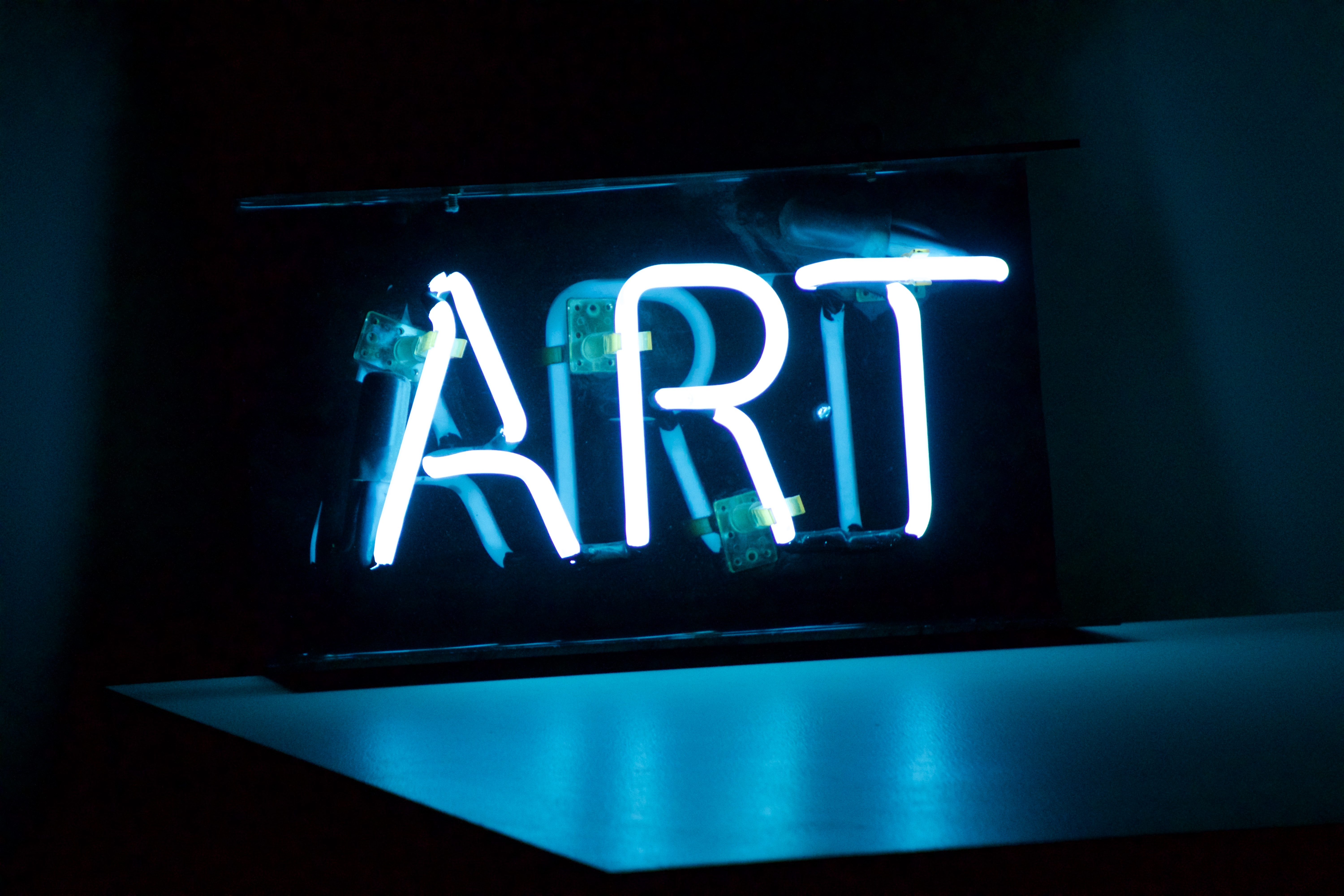
Hope for the Holidays
If the holiday season evokes more stress than excitement in you, you’re not alone.
In truth, the holidays have become something bigger than they need to be. Every year, they seem to take up more and more of the winter season, with Christmas music playing before trick-or-treating is even over.
Absolutely nothing is wrong with wanting to avoid getting swept up in the media madness that has made this time of year into something more. There is no pressure to feel anything specific about the holidays. If they make you feel joyful, fantastic, but if they don’t, that’s okay, too. For many LGBTQ people, the holidays can be filled with anxiety and trauma as we anticipate seeing family and friends who may have rejected our identities or to whom we are not yet out.
If this time of year is indeed a source of stress for you, Urban Playology offers special holiday sessions and consultations. For now, here are a few tips to help get you through the holidays:
1. Begin a daily grounding ritual before the holidays begin
Whether first thing in the morning or before bed each night, doing something consistent every day will help you feel grounded and present within your own body. This ritual can be anything, from walking your dog to meditating to dancing around your room to putting on your favorite body oil to talking to a friend.
Whatever ritual you choose, make sure you begin before the holidays and continue doing after. Just like there is a warm up and a cool down when we exercise, we need to both prepare our minds and bodies for the events to come and also help them recover when they are over.
2. Volunteer and Commit Random Acts of Kindness
Doing something kind for another person is one of the best ways to feel better when you are sad or stressed. It allows you to step outside of yourself for a while—and it just feels really good. So sign up to volunteer at a soup kitchen or do an extra round of dishes at home without asking for a thank you or acknowledgement—anything you do that will brighten someone’s day is sure to also brighten yours.
3. Self-care, self-care, self-care
It seems obvious, but when you’re hungry, eat. When you’re tired, sleep. When you have to go to the bathroom, go. When you need a moment to be alone and breathe, excuse yourself. All of this impacts your stress levels, so make sure your body and mind are nourished and being given what they need.
4. Make a family pact
If you’re worried about difficult conversations coming up at family gatherings, find out if your family will agree to certain topics being off the table while you’re all together.
5. Focus on the positive
Whatever we focus on gets bigger. If we focus on the positive, we see more positivity. If we focus on the negative, we see more negativity. Do your best to focus on the positive things in your life, and maybe even the positive things about your family.
6. Know that it’s okay to decide to stay home this year
Sometimes, it’s okay to make the difficult decision to avoid being with the people who cause you stress. If you’re going to be more upset or traumatized after visits with your family, if it will be harder for you to go back to work or go back to your friends or partner, ask yourself if it is really worth it.
Remember, your family and where you come from is only one aspect of who you are. You are not just the child of your parents, the sibling of your siblings, the grandchild to your grandparents. You are a writer, a photographer, a doctor, a friend, a partner, someone with interests and hobbies. You are bigger than your family.
7. Consider temporarily giving up social media
Take a break and focus on yourself this holiday season. If you need help committing to the hiatus, find an accountability partner that can keep you on track.
8. When you’re feeling true despair, wait five minutes
When you are starting to feel really dark and despairing, give yourself five minutes. If you wait five minutes, that feeling will peak, and then wait another five minutes and you should start to feel better, especially if you have someone you can share your despair with. Urban Playology clients have access to their therapist 24/7. Reaching out to a therapist or a friend you can trust can quickly help you start to feel more regulated.
Keep in mind that there is no pressure for your holiday season to be any one thing. Everything is going to be okay, as long as we stop trying to define what “ok” looks like.
Here are some more articles about the importance of self-care:
https://www.fastcompany.com/90435139/too-busy-for-self-care-ask-yourself-these-four-questions
https://www.forbes.com/sites/tamiforman/2017/12/13/self-care-is-not-an-indulgence-its-a-discipline/#3737530ffee0
https://hellogiggles.com/love-sex/friends/19-things-self-care/
Learn More
Play Therapy & Creative Arts Therapy
At Urban Playology, we meet people where they are. That includes young loves, ages 2-18, and their families. Play therapy and creative arts allow us to extend our supreme embrace to young loves and families.
Perhaps your young love’s personality or their energy has shifted in a way that’s got you concerned. Maybe they are underperforming or underachieving at school. Perhaps the other caring adults in your close-knit community ie a coach, or a dance teacher, or an extended family member, etc express concern after a recent encounter with your young love.
Perhaps you’re finding it more difficult to sleep soundly at night because you find yourself more worried about your young love. But you can’t put your finger on it. Maybe on the surface and by all accounts, everything seems or should be just fine. Perhaps you’ve been meaning to make sure your young love has the support they deserve to get through a tough time your family has been having ie conscious uncoupling, a move, a recent death, etc. Maybe they’ve actually asked if they could see a talking doctor or a talking doctor who works with children or a fun doctor for children.
Perhaps your young love has recently received a new diagnosis ie ADHD, ADD, depression, anxiety, gender identity concerns, etc. and you’re trying to figure out what it all means.
It may be hard to believe but our experience is that play therapy and expressive arts can help make things clearer.
The toys are the words and play is the language. Meeting young people who are hurting where they are means making what’s natural to them be available to them.
In play therapy and expressive arts therapy, both widely research-based modalities, young people can express themselves-their thoughts, their feelings, their hopes, and dreams.
There are 2 preliminary office-based consultations if you will.
At the 1st appointment, about 50 minutes in duration, we meet with parents or caregivers first. We meet in the play therapy space which allows parents to see and experience the place where their child’s healing will take place. We converse freely amongst ourselves as adults. Sometimes parents or caregivers share photos of, videos of, and/or artwork created by their young love hands.
At the 2nd appointment, also lasting about 50 minutes in duration, parents and their young loves come to the space and young people are encouraged to see how they feel here if this is a place they’d like to come to on a regular basis for a while.
Families are then encouraged to return home and have a family conference about their collective decision about how they wish to proceed.
Would they like to have Urban Playology as support on their healing journey?… That’s the question they get to ask themselves.
We wait patiently for follow up from all families. We totally trust you to do what’s best for your family.
We book the 1st official play therapy session. Parents or caregivers are welcomed to participate in this session, especially if young people request such. We find that even when they’re hurting, young people still know exactly what their hearts need. And yes, sometimes the young people who make their way 2 UP want the grown-ups to play with them.
There are few rules in the world of play therapy. Perhaps that’s why we love it so! 🙂 The rules that do exists ie toys remain in the play therapy room etc hopefully and lovingly anchor young people to the real world.
Sometimes we enjoy a nourishing snack with the music of the choice of the young ones while we create healing art or healing scenes in the sand tray. Sand tray therapy is a co expressive arts modality.
Sometimes we take a walk. I think the hardest thing about having your young love in play therapy and/or expressive arts therapy is the waiting and the enigmatic energy of it all. We get to trust them and lean into trusting ourselves as the grownups.
It’s like: “How does playing with toys that honestly seem less modern than what we’ve invested in at home help with my child’s tantrums, or potty training accidents, or their nightmares?!? This is quite the expensive use of our finances and our time!”
To that valid concern, I would say that when young people feel fully supported in their healing, they get to really focus on that healing. We follow their lead every step of the way. We get to trust them and lean into the trust of ourselves as the grownups.
When you really think about it, how could something so life-giving have anything but a sustainably positive impact?…
If they are worried about being a burden or are worried about the perceived burden as associated with their issues, therapy may have a negative impact. When they are ready for their long goodbye, it always becomes crystal clear.
Here’s one of our favorite books about play therapy. Sometimes families read the book at home before our 1st appointment or during the 1st all member appointment.
Here’s a couple of our favorite videos about play therapy.
Here’s one of our favorite articles about play therapy from the Association for Play Therapy, the accrediting body for Xanthia’s credential.
https://www.a4pt.org/page/PTMakesADifference/Play-Therapy-Makes-a-Difference.htm
Here’s one of our favorite articles about expressive therapy & creative arts therapies:
https://www.psychologytoday.com/us/therapy-types/expressive-arts-therapy
Xanthia has earned the most advanced credential-the Registered Play Therapist Supervisor credential. She is also a national trainer of other hopeful play therapists and expressive arts therapists. She has also studied under internationally recognized master experts in the field. In 2018, Xanthia & Urban Playology also received the Service Award from the MD/DC Branch of the Association for Play Therapy.
Learn More
Finding The Dopest Psychotherapist Ever For You!
You deserve a therapist who sees you and fully embraces you. Finding a supreme fit takes time for exploration and may be challenging for many. You are worth the effort. I’ve read a lot of blogs about how to find the right therapist.
Most take a practical approach.
* Education-check.
* Professional discipline i.e. Clinical counseling, clinical psychology, clinical social work.- check
* Licensure Credentials-check.
* Insurance accepted-check.
* Experience working with others who have had your problem-check.
* Theoretical approach that seems to align with your beliefs & values-check.
* Preferred availability i.e. weekdays, weekends, etc-check.
All of these are super important! What’s talked about less often is the need to take a moment for reflection about how you feel when you’re talking to your prospective therapists upon the first encounter via email or phone and to what degree the therapist might be a supreme fit for your current needs- logistically, emotionally, and financially.
* How quickly after your first outreach were you able to connect with the psychotherapist?…
* Does the conversation flow?…
* Do you feel hopeful after the encounter?…
* Was the psychotherapist kind, courteous, & respectful towards you?…
* Did they take time to respond to your questions in full?…
* Do the quoted rates i.e. co-pays, etc. work for your budget?
Some psychotherapists take an initial administrative approach when you reach out to them. They are happy to get you scheduled right away. Maybe within the week. Others, like us at UP, offer a brief complimentary consultation first. We value you & your time & we want to ensure that we have a clear sense of what’s hurting your heart right now. If you’ve reached out and someone’s profile really resonates with you, it may be helpful to reach out to them via email and phone. You may want to follow-up if you have not heard back from them within 24 business hours.
For scheduling, be prepared to offer up your supreme availability. It increases the likelihood of snagging an appointment sooner than later. Do what you can to plan your flexibility. Once your appointment is scheduled, guarding your availability may involve partial or full disclosure to key stakeholders i.e. immediate supervisors, closest friends, and family members, etc. regarding your new standing therapy appointment.
Here are other introspective queries:
* Am I ready for the commitment of time that psychotherapy may require of me?…
* Am I ready for the emotional vulnerability that sometimes comes with psychotherapy?…
* Am I ready for the temporary financial investment of psychotherapy?…
* To any of the aforementioned, how would I know if I was ready?…
* What are my hopes & expectations of psychotherapy?… To be honest, I think it can take time to find a really dope therapist i.e. maybe 1-3 months depending on your search dedication. Consider that many therapists are seeing back-to-back clients during the workday. And if you’re returning to therapy after being away for a while, know that the landscape of mental health support may have evolved. I know that when you’re hurting, a process like the one described may seem arduous, perhaps insurmountable. Sometimes people feel that this is a lot more work than they bargained for, especially when they’re hurting and they’re just really in need of kind, supportive counseling. You get to decide what takes precedence-meeting with the first available person or doing the work on the front end to improve the likelihood of identifying a supreme fit. Sometimes it either takes several sessions with one therapist or several first meetings with several different therapists. I suggest that you pursue each scenario exclusively of one another for optimal results.
In my experience, openness & willingness to connect with your supreme fit therapist can be a kind of spiritual or existential experience. The waiting and uncertainty can be tough when you are already in a lot of emotional pain. In this case, you may consider working with a foster therapist on a brief consultative basis while also continuing in your search for a therapist to call home. Perhaps your foster therapist can support you in identifying a dope therapist as well. Some do opt to get support from other healers i.e. reiki practitioners, sound bath therapists, astrologers, priestesses, nature therapists, etc. They enlist those healers while waiting for the identification of a therapist or while on the waiting list for their top choice therapist.
Sometimes, supportive dyads or triads will reach out together to prospective psychotherapists. This system can help reduce the anxiety that can sometimes come with meeting a new psychotherapist. Sometimes families use this outreach technique as well. If you prefer a more secondary backstage support plan for finding your dope therapist, perhaps you can enlist an accountability partner. You can schedule progress check-ins with your partner so that hopefully you don’t feel as alone in the process. Sometimes you may have to invest in a paid assistant who, once they know what you’re looking for, can help you narrow down your search.
Psychology Today (hyperlink), an extensive online hub for psychotherapists and healers of various disciplines, & Therapyforblackgirls (hyperlink) a nationwide directory of female therapists of color, may be resources. Bark.com (hyperlink) is a potential resource that allows you to answer a few pertinent questions about your dream therapist. Think Match.com. You then receive emails of prospective psychotherapist matches that you can reach out to directly. The National Queer & Trans Therapists of Color Network is another resource for individuals who wish to work with a psychotherapist who specializes in providing kind and affirming counseling support to the LGBTIQA community. You may also want to check out some of our favorite therapists of color in the DMV as found here (hyperlink). Ask around too! You’d be surprised by who else knows of a good therapist.
Lastly, whoever you choose as your therapist, make sure they really wanna know you, make sure they really see you. Make sure they really feel you. You deserve that. If by chance, you are transitioning to a new therapist, I invite you to first be sure that you aren’t running from a growth opportunity with your current therapist. It may be helpful to practice transparency with your current therapist to make sure that you are on the record about how you are experiencing the work with them. You may want to allow 1-2 months to see how things go. And then if you are still feeling compelled to explore other options, you may want to let them know. This is a part of healthy transitions and long goodbyes. Remember that therapists are human too and many have been called to this work.
I promise that if you practice vulnerability and you are honest with your dope new therapist, you WILL feel better. And although therapy is not for everyone, I do believe it can be beneficial to anyone.
Whatever you do, don’t give up! You, mon cherie, deserve the world.
Learn More
SUPREME EMBRACE is TOTALLY Our Vibe
We all know what it feels like to enter a space & be apprehensive about whether you wanna be there or whether you’re welcomed there. It’s feels like Alessia Cara’s Here video. Super awkward & uncomfortable! And when you’re already feeling like an outlier in your daily life, you become super attuned to the welcoming vs. exclusionary energy.
And it just shouldn’t be like that when you’re going to counseling. It’s a big courageous step to ask for support in the 1st place. The least we can do at Urban Playology is make sure you feel welcomed & supremely embraced from the moment you initially connect with us via phone or email to the moment you leave the office for the 1st time. And of course, thereafter!
There’s all these neuro-biological nuances to my method. I spend lots & lots & lots & lots of time refining it. Think Jiryo Dreams of Sushi. I’ve studied under the best relationship experts in the DMV and abroad. I have a diverse family of mentors and my interaction with these amazing people have really fortified the foundational elements to my method. I guess when I, as the pupil, was ready, my teachers appeared.
Healing abound is available to those who truly feel safe & even more embraced, no matter what. So bring your yoga mat, your playlist, your bestie, your boo, your sushi, your puppy (sorry no cats-I’m allergic, but you can totally bring a photo) and let’s get to work on the healing you deserve so much. And plus, if karma is real, why not just be nice?!? O! It’s not all on us, as therapists. I do believe that clients contribute the practice of trusting the therapist, trusting the process. I’ve never met a person who didn’t practice trust. And I know I never will.
Learn More